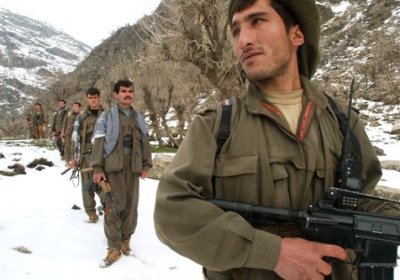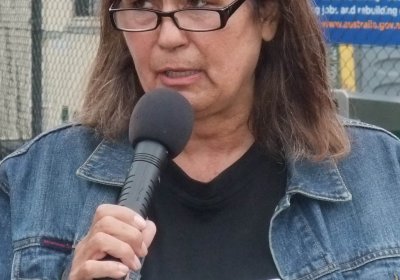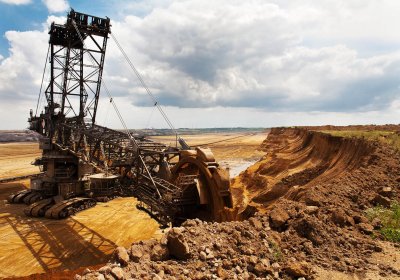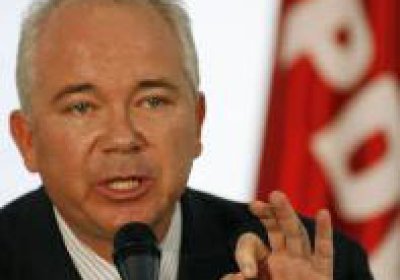A nearly two-month-long student strike that shut down all 11 campuses of the University of Puerto Rico (UPR) ended in a decisive victory for the students.
The students’ inspiring unity, determination and creativity serve as a magnificent example of how to fight and win in the face of neoliberal attempts to balance budgets in this era of global austerity.
The strike began April 21 as a 48-hour stoppage at UPR’s main campus of Rio Piedras to protest US$100 million in budget cuts, a sharp increase in student fees and the administration’s unwillingness to negotiate with student activists.
843
In 2006, the Victorian government committed to introducing a “landmark” Climate Change Bill. At this time, there was growing momentum around the world for legislation that would cut greenhouse gas emissions. This momentum was largely in response to the glacial pace of the international climate change negotiations.
The Punjab government has been given three months to decide the fate of 68,000 hectares of agricultural land. The land is owned by the government and has been cultivated by tenants for more than 100 years.
The tenants have demanded land ownership rights. Despite government promises, the land has not been allotted to them.
The three months’ notice was given at the end of a huge peasants rally on June 29 at Okara. The rally was organised by the Punjab Tenants Association (AMP) on the eve of the anniversary of 10 years of the tenants’ struggle for land ownership rights.
In her opening remarks as Australia’s new prime minister, Julia Gillard said she believed climate change was real and was caused by human activity. What she left unsaid was that she doesn’t believe in doing much to stop it.
Former PM Kevin Rudd’s rapid nosedive in the opinion polls coincided with Labor’s April decision to dump its proposed emissions trading scheme until 2013.
The scheme itself was radically flawed, but many people still associated it with action on climate change. More than with any other issue, Labor was punished for its perceived backflip on climate.
The 17th LGBTT (lesbian, gay, bisexual, transvestite and transsexual) Pride Week ended with a Pride March in Taksim, central Istanbul, on June 28, Bionet.org said the next day. It said more than 3000 people took part.
Bionet.org said the crowd, gathered around a huge rainbow flag in Taksim Square, were at first prevented from marching by police. The crowd protested the police action, shouting slogans for about an hour.
The police then allowed the crowd to march “without placards or slogans”.
On June 1, the Kurdish Workers Party (PKK) announced an end to its 13-month unilateral ceasefire. Since 1984, the PKK has waged an armed struggle against the Turkish state for Kurdish self-determination.
A day earlier, imprisoned PKK leader Abdullah Ocalan announced that he was withdrawing from negotiations. He cited a disconnect between the Turkish government’s promised reforms and continued violent repression of Turkey’s Kurdish population.
Iceland’s Prime Minister Johanna Sigurdardottir married her long-time partner on June 27 as a new law legalising same-sex marriages came into force, Telegraph.co.uk said on June 28.
On June 12, Iceland's parliament passed legislation allowing gay marriage. Telegraph.co.uk said gay couples could previously enter into civil partnerships with the same rights as married couples, but this had not been considered a formal marriage.
At dawn one year ago, on June 28, soldiers invaded the home of Honduran president Manuel Zelaya and flew him to Costa Rica.
It was a frightening throwback to the days when military men, backed by a local oligarchy and often the United States, could overturn the results of democratic elections.
It would also turn out to be a pivotal moment for relations between the US and Latin America. A new generation of left-of-centre governments in Argentina, Bolivia, Brazil, Chile, Ecuador, Paraguay, Uruguay, and Venezuela were all hoping for a new relationship with Washington.
The New Way Summit, held in Melbourne over July 1-4, brought together around 100 Indigenous and non-Indigenous people from about Australia to discuss the issues confronting the struggle for Indigenous rights. A big focus of the summit was on the issues of genocide, sovereignty and treaty.
This was the third in a series of New Way Summits. The first one took place in Canberra in January.
The summit was successful in bringing together indigenous activists from Darwin, New South Wales, Queensland, regional Victoria and Melbourne, as well as non-Indigenous supporters.
From the standpoint of conventional political analysis, Julia Gillard has had a spectacular start to her reign as prime minister.
She wrested the position from Kevin Rudd with minimal bloodshed, announced she was going to neutralise the mining tax controversy by negotiating with the mining billionaires and was rewarded with a dramatic turnaround in the opinion polls.
The head of Venezuelan state oil company PDVSA said on June 24 that the government is to nationalise 11 oil rigs previously operated by a US petroleum firm. This comes after the company, Helmerich & Payne, closed down production and refused to negotiate a new services agreement.
PDVSA president Rafael Ramirez said the nationalisation would “boost domestic production of hydrocarbons and strengthen the policy of full oil sovereignty”.
Despite freezing weather, 30 people took part in a community speak-out against racism on July 2 in Newtown, in Sydney’s inner-west. Initiated by the Socialist Alliance, speakers included Greens deputy mayor of Marrickville Fiona Byrnes, refugee rights activist Saradha Nathan, Ellouise Davis from the Newtown Neighbourhood Centre, Hadi Zaher, Reverend Dave Smith from the Hold Trinity Church in Dulwich Hill, Peter Robson from Stop the Intervention Coalition and Pip Hinman, Socialist Alliance candidate for Grayndler.
- Previous page
- Page 2
- Next page











